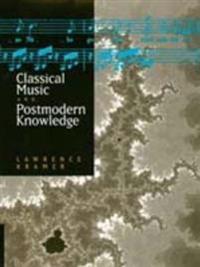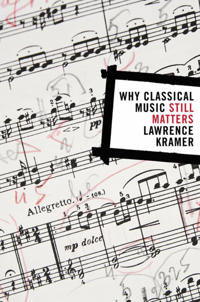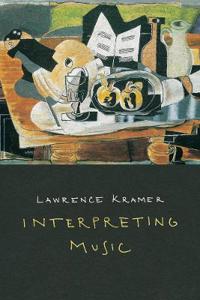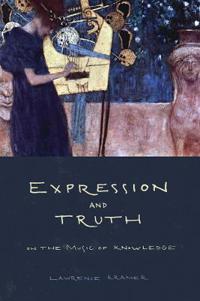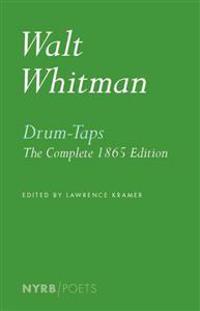Classical Music and Postmodern Knowledge (Häftad)
avLawrence Kramer
ISBN: 9780520207004 - UTGIVEN: 199611A leading cultural theorist and musicologist opens up new possibilities for understanding mainstream Western art music - the 'classical' music composed between the eighteenth and early twentieth centuries that is, for many, losing both its prestige and its appeal. When this music is regarded esoteri[...]
Opera and Modern Culture: Wagner and Strauss (Övrig)
avLawrence Kramer
ISBN: 9780520251601 - UTGIVEN: 2004-09-24In this enlightening and entertaining book, one of the most original and sophisticated musicologists writing today turns his attention to music's most dramatic genre. Extending his ongoing project of clarifying music's various roles in Western society, Kramer brings to opera his distinctive and pion[...]
Why Classical Music Still Matters (Häftad)
avLawrence Kramer
ISBN: 9780520258037 - UTGIVEN: 200901'What can be done about the state of classical music?' Lawrence Kramer asks in this elegant, sharply observed, and beautifully written extended essay. Classical music, whose demise has been predicted for at least a decade, has always had its staunch advocates, but in today's media-saturated world th[...]
Interpreting Music (Övrig)
avLawrence Kramer
ISBN: 9780520267053 - UTGIVEN: 2010-10-18"Interpreting Music" is a comprehensive essay on understanding musical meaning and performing music meaningfully - 'interpreting music' in both senses of the term. Synthesizing and advancing two decades of highly influential work, Lawrence Kramer fundamentally rethinks the concepts of work, score, p[...]
Interpreting Music (Häftad)
avLawrence Kramer
ISBN: 9780520267060 - UTGIVEN: 201010"Interpreting Music" is a comprehensive essay on understanding musical meaning and performing music meaningfully - 'interpreting music' in both senses of the term. Synthesizing and advancing two decades of highly influential work, Lawrence Kramer fundamentally rethinks the concepts of work, score, p[...]
Expression and Truth: On the Music of Knowledge (Inbunden)
avLawrence Kramer
ISBN: 9780520273955 - UTGIVEN: 2012-09-18Expression and truth are traditional opposites in Western thought: expression supposedly refers to states of mind, truth to states of affairs. Expression and Truth rejects this opposition and proposes fluid new models of expression, truth, and knowledge with broad application to the humanities. The[...]
Expression and Truth (Pocket)
avLawrence Kramer
ISBN: 9780520273962 - UTGIVEN: 201209Expression and truth are traditional opposites in Western thought: expression supposedly refers to states of mind, truth to states of affairs. Expression and Truth rejects this opposition and proposes fluid new models of expression, truth, and knowledge with broad application to the humanities. The[...]
Drum-Taps (Pocket)
avWalt Whitman, Lawrence (EDT) Kramer, Walt Whitman
ISBN: 9781590178621 - UTGIVEN: 2015-04Walt Whitman worked as a nurse in an army hospital during the Civil War and published "Drum-Taps," his war poems, as the war was coming to an end. Later, the book came out in an expanded form, including "When Lilacs Last in the Dooryard Bloom'd," Whitman's passionate elegy for Lincoln. The most movi[...]

